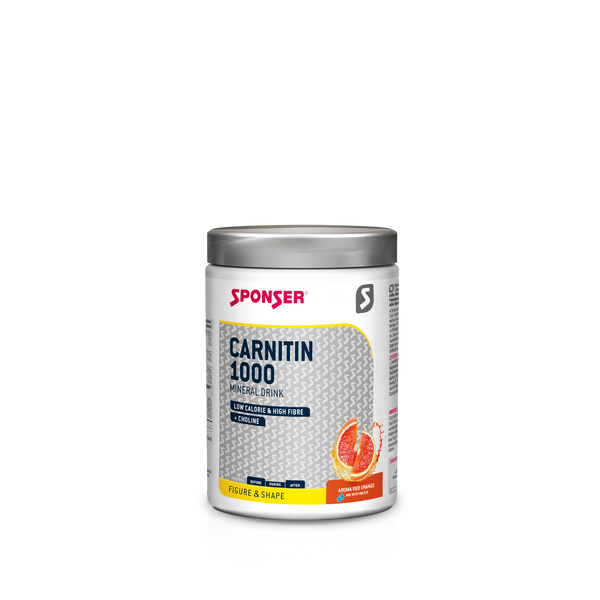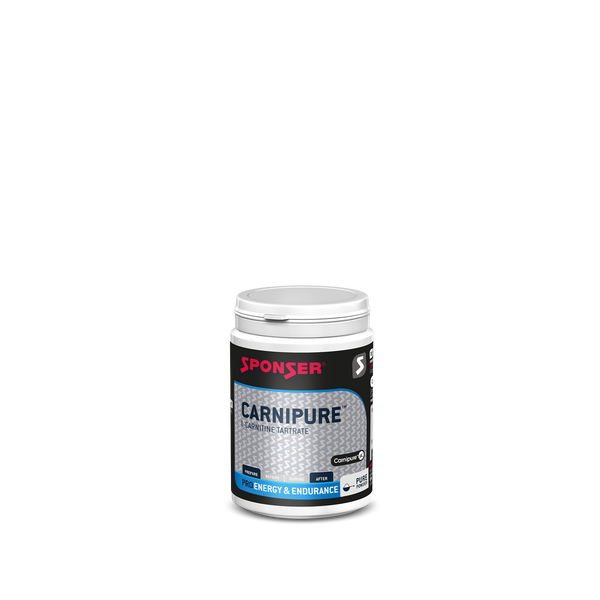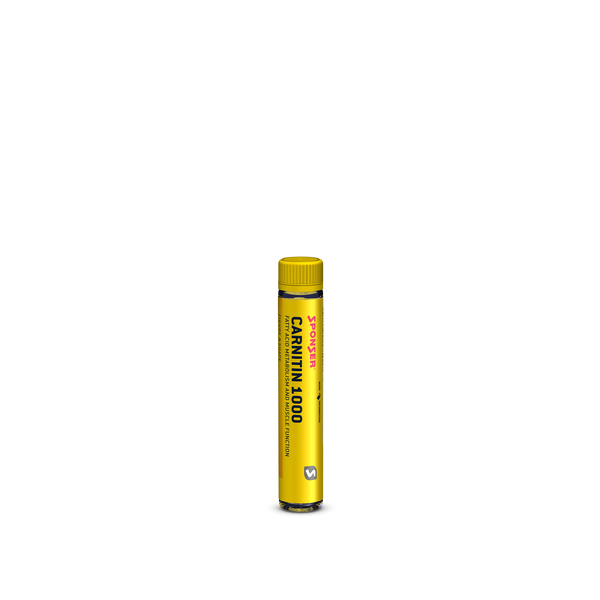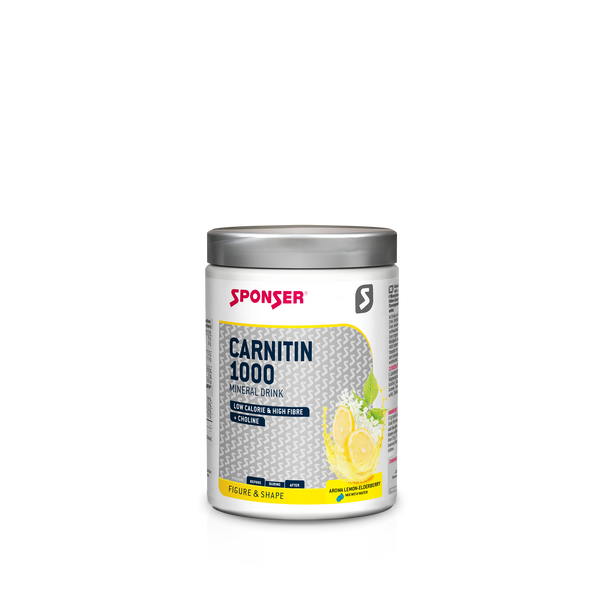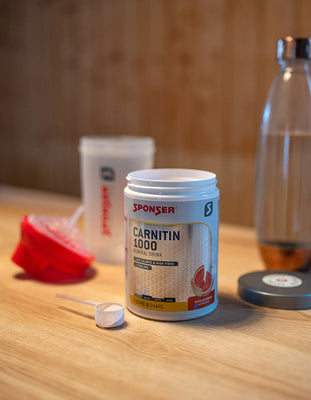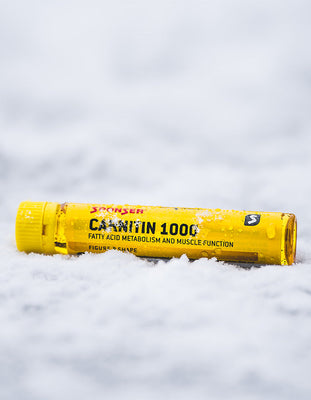
Effects, dosage and product recommendations for L-carnitine
L-carnitine is a vitamin-like substance that plays an important role in energy metabolism. The body can produce L-carnitine itself, but in certain situations not in sufficient quantities. L-carnitine is mainly found in foods of animal origin, whereas it practically does not occur in plant foods.
What are the benefits of L-carnitine?
The need for L-carnitine increases, especially during physical activity, weight loss, stress and illness. People who follow a low-meat diet (e.g. vegetarians or vegans) can also benefit from additional supplementation with L-carnitine.
What are the most important functions of L-carnitine?
L-carnitine optimises fat oxidation and increases endurance performance. The carnitine stored in the muscle plays a crucial role in transporting long-chain fatty acids to the mitochondria, where they are used to produce energy. This can help to increase fat burning and boost overall energy levels. Research has shown that higher levels of carnitine in the muscles are associated with improved fat metabolism and increased endurance performance (1, 2, 3). Easy, low-intensity endurance training (so-called zone 2 training: approx. 60-70% of maximum heart rate; graded on the Borg scale of 11-13 from «easy to slightly difficult») is particularly beneficial for achieving these results.
L-carnitine shows antioxidate protection effects
Studies have shown that L-carnitine supplementation leads to lower lactate, cortisol, creatine kinase and ammonia levels in athletes after exercise, which means less oxidative stress (4, 5, 6). Supplementation in high doses (over 1000 mg) relatively shortly before training appears to be advisable, as circulating L-carnitine - in contrast to muscle carnitine - presumably has a vascular-protective effect against oxidative damage in the microvascular area.
L-carnitine boosts fat burning after exercise
Supplementation of L-carnitine causes increased fat burning even after physical activity. However, L-carnitine is not a fat burner itself, but primarily pushes a fat metabolism that has already been activated by physical activity.
L-carnitine supports regeneration
L-carnitine has a regeneration-promoting effect, especially in phases of exhausting training and physical activity. For this reason, it is advisable to take L-carnitine in a dosage of at least 2 g shortly before and/or after exercise, as it only shows a noticeable effect at a dosage of more than 1000 mg.
L-CARNITINE from SPONSER®:
CARNIPURE
Food supplement with L-carnitine tartrate as CarniPure® quality from LONZA for ambitious ultra-endurance athletes.
CARNITIN 1000 MINERAL DRINK
Electrolyte drink with 1000 mg L-carnitine per serving, enriched with the women-specific deficiency substances iron, calcium and magnesium. With 1000 mg L-carnitine per 300 ml to promote fat metabolism. Ideal as a low-calorie drink with meals or during light training.
CARNITIN 1000
25 ml ampoules with L-carnitine (1000 mg) plus zinc (3.8 mg) and magnesium (75 mg). Supports regeneration and promotes fat burning. 1-2 ampoules daily, ideally approx. 1 hour before training.
Related articles
on » fat metabolism
on » amino acids
on » science
Literature
1) Stephens FB et al. (2006): Carbohydrate ingestion augments L-carnitine retention in humans. J Appl Physiol, 102(3):1065-70.
2) Wall BT et al. (2011): Chronic oral ingestion of L-carnitine and carbohydrate increases muscle carnitine content and alters muscle fuel metabolism during exercise in humans. J Physiol, 589(4):963-73.
3) Stephens FB et al. (2013): Skeletal muscle carnitine loading increases energy expenditure, modulates fuel metabolism gene networks and prevents body fat accumulation in humans. J Physiol, 591(18):4655-66.
4) Galloway SDR et al. (2004): Effect of 2 weeks supplementation with L-Carnitine-L-Tartrate on plasma ammonia response to exercise. Conference proceedings, FASEB.
5) O’Connor JE et al. (1990): New roles of Carnitine metabolism in ammonia cytotoxicity. Adv Exp Med Biol 272:183-195.
6) Spiering BA et al. (2008): Effects of L-carnitine L-tartrate supplementation on muscle oxygenation responses to resistance exercise. J Strenght Cond Res, 22(4):1130-5.
Author: Remo Jutzeler
Head R&D SPONSER SPORT FOOD
Ing. Applied Food Sciences UAS
MAS Nutrition & Health ETHZ













